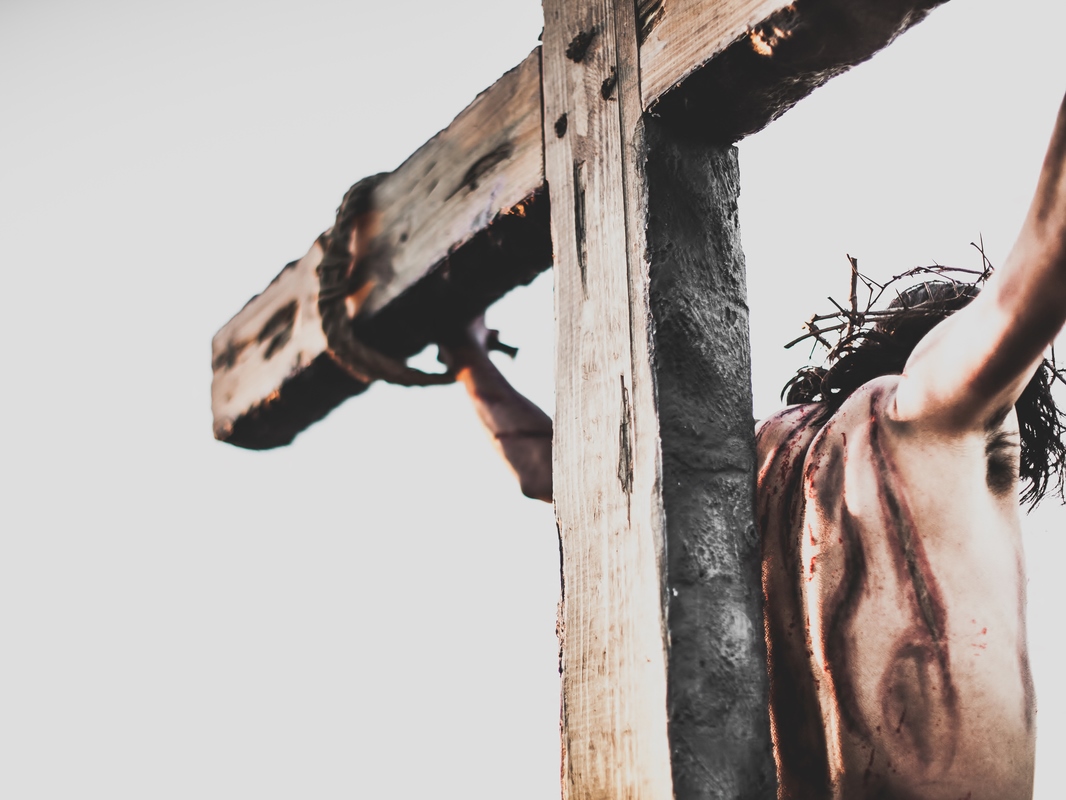If ever there was a time when you might expect the judgment of God to fall from heaven, it would be the moment when Jesus was nailed to the cross. God took our human flesh and came among us in Jesus Christ. And we crucified Him. The world was on a collision course with God.
What happened next was truly remarkable. As Jesus was nailed to the cross, He said, “Father, forgive them, for they do not know what they are doing” (Luke 23:34). There was no thunderbolt from heaven, no lightning strike of God’s judgment. The soldiers who tortured Jesus went home to their families. Pilate woke up the next morning. Caiaphas continued as high priest.
Jesus prayed—and God’s judgment was held back. Forgiveness and mercy were released. The light of hope was shining in the middle of the most appalling hatred and violence.
Mocking and Taunting
A crowd gathered around the cross of Jesus to watch Him suffer. They taunted Jesus about His claim to be the Son of God. “Come down from the cross, if you are the Son of God,” they said. “Let God rescue him now if he wants him” (Matthew 27:40, 43).
The soldiers joined in mocking Jesus. If He couldn’t do anything to save Himself from the awful suffering He was experiencing, what could He possibly do to save other people?
Two robbers who were crucified beside Jesus joined in heaping insults on Him (Matthew 27:38; Mark 15:32). But then something changed.
One of the thieves stopped shouting. A deep silence seemed to come over his soul as he realized his true position. He was approaching the last moments of his life. Earth was receding, and eternity was looming on the horizon. Soon he would stand in the presence of God, and he realized that he was not prepared.
“Don’t you fear God?” he asked his friend, who continued to shout insults toward Jesus. “We are punished justly, for we are getting what our deeds deserve. But this man has done nothing wrong” (Luke 23:40–41).
The thief accepted responsibility for his own actions. He recognized that the long arm of the law had caught up with him and that he was receiving justice. But he also saw that Jesus was suffering a great miscarriage of justice. And he knew enough about God to believe that somewhere beyond death Jesus would be vindicated.
A Courageous Request
Spurred on by these thoughts, the thief turned toward Jesus. Above Jesus’ head was an inscription that read “the King of the Jews” (Matthew 27:37). It was obvious that if Jesus were to rule a kingdom, it would not be in this world. He was only a few hours from death. But beyond death there is eternity, and that awesome reality was now filling the thief’s mind.
“Jesus,” he said, “remember me when you come into your kingdom” (Luke 23:42). He recognized that Jesus had the authority of a king, and he believed that Jesus might be able to help him.
The thief had no idea of when this would happen. But perhaps in eternity Jesus would recall the unusual circumstances of their meeting. And if Jesus remembered him, perhaps there could be some hope.
It was a courageous request. The crowd had mocked Jesus’ claim to save others. But the thief felt that Jesus was the one person who might be able to help him. So he stood out from the crowd and staked his hope on Jesus.
An Immediate Promise
Christ’s reply was immediate. “Truly I tell you,” He said, “today you will be with me in paradise” (Luke 23:43).
Paradise! This was far more than the thief could ever have dreamed. Paradise was the place where the blessing and presence of God would be known. Jesus was about to enter that blessing. He would take the believing thief with Him. And it would happen “today”!
This must have come as a shock to the thief whose best hope was for some help in the distant future. But Jesus made it clear that death would not lead this man into a long period of unconsciousness or a process of preparation. Death would lead into the immediate presence of God, and Jesus promised that He personally would bring this man into paradise. Suddenly, this man, for whom the world held nothing, found that, because of Jesus, he was about to enter the greatest joy a human being can ever know.
It’s Never Too Late
The story of the thief who was saved in the last hours of his life helps us to identify the clear steps by which any person can come to Jesus:
1. The thief recognized his own sinful condition. He realized that he had broken God’s Law. He made no excuses or evasions.
2. He asked Jesus to help him.
3. And Jesus answered with a simple promise that the thief believed. He was saved by faith in a crucified Savior.
Whatever you have done or failed to do, you can come to Jesus in the same way. Recognize your sinful condition. Believe in the Lord Jesus Christ. Ask Him to save you. It is never too late to come to Him.
A View from the Fourth Mountain
We have described the Crucifixion as a mountain rather than a valley because the glory of the Lord Jesus Christ was revealed on the cross. Forgiveness, grace, and mercy were poured out as Jesus prayed for His torturers and opened paradise for a repentant criminal who had no other hope.
We have traced the story of Jesus’ suffering at the hands of men and His ministry of compassion even in the extremity of His pain. But there is another dimension of the story. The Bible makes it clear that in His death, Jesus bore the guilt and punishment for our sins. To understand what this meant for Jesus, we must now explore the deepest and darkest valley in the entire Bible story.


